Books
Therapy Book Recommendations | Chicago Male Therapist Reading List
Our Chicago male therapist has curated this list of the best therapy and self-help books for individuals, couples, and families. Whether you’re in therapy with us, considering starting therapy in Chicago, or just looking to learn more about mental health, these books are recommended by Erik Giles, LCSW. Each book offers insights into relationships, personal growth, emotional healing, and therapeutic approaches. Many clients at Modern Therapy Alliance in Chicago use these books alongside individual therapy or couples counseling to deepen their work.
General Books for Therapy Clients in Chicago:
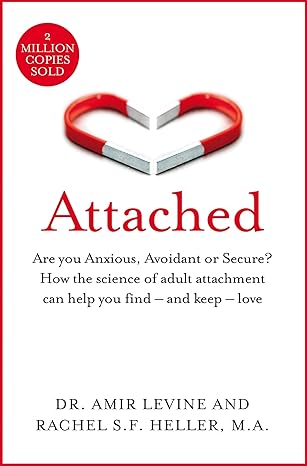
Attached
In this groundbreaking book, psychiatrist and neuroscientist Amir Levine and psychologist Rachel S. F. Heller reveal how an understanding of attachment theory-the most advanced relationship science in existence today-can help us find and sustain love. Attachment theory forms the basis for many bestselling books on the parent/child relationship, but there has yet to be an accessible guide to what this fascinating science has to tell us about adult romantic relationships-until now.
Attachment theory owes its inception to British psychologist and psychoanalyst John Bowlby, who in the 1950s examined the tremendous impact that our early relationships with our parents or caregivers has on the people we become. Also central to attachment theory is the discovery that our need to be in a close relationship with one or more individuals is embedded in our genes.
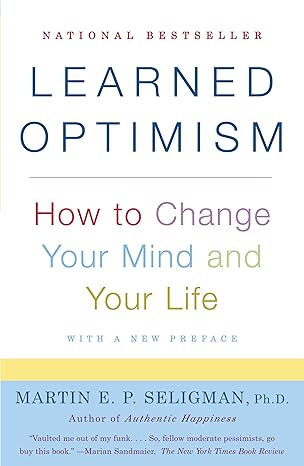
Learned Optimism
From the founder of positive psychology comes a transformative guide to rewiring your mindset, breaking free from limiting beliefs, and cultivating lasting happiness.
Drawing on decades of groundbreaking research, Dr. Martin Seligman reveals how habitual pessimistic thinking can lead to depression, low achievement, and poor health—and more importantly, how to change it. Through powerful yet practical tools, you’ll learn to shift your internal dialogue, strengthen your emotional resilience, and create a more empowered, hopeful approach to life.
With additional guidance for parents, educators, and leaders, Learned Optimism offers timeless insight for building a future rooted in confidence, purpose, and optimism—no matter your starting point.
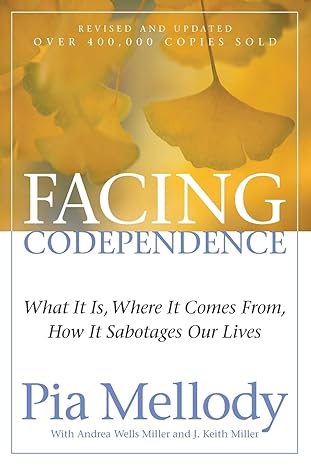
Facing Codependence
If you’ve ever found yourself in toxic relationships, struggled with self-sabotage, or longed for more fulfilling and balanced connections, this book offers a clear path forward. Renowned expert Pia Mellody unpacks the complex patterns of codependent thinking, emotions, and behaviors. With compassionate clarity, she guides readers through a proven process of recovery that helps break harmful cycles, develop healthier habits, and reclaim a strong sense of self-worth.
Whether you’re looking to end toxic relationship dynamics, overcome addictive patterns, or build a more stable and authentic connection with yourself and others, Facing Codependence is a powerful starting point. It’s a roadmap to rediscovering who you truly are beneath the survival strategies—and learning to live with more freedom, balance, and purpose.
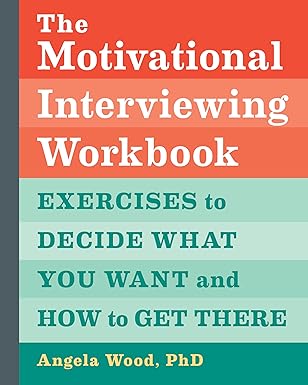
The Motivational Interviewing Workbook
Motivational interviewing can help you clearly define your goals, think things through, and move toward change. Whether you’re considering losing weight, addressing an addiction, leaving a toxic relationship, or any number of other big goals, taking steps toward personal change requires a steadfast mindset and a detailed plan of action.
The Motivational Interviewing Workbook is filled with practical prompts, guidance, and support for figuring out long-term goals, developing a solid plan to achieve them, and making a committed change. It will help you build your motivation, clarify your commitment to reaching your goals, and empower you to take charge of your future.
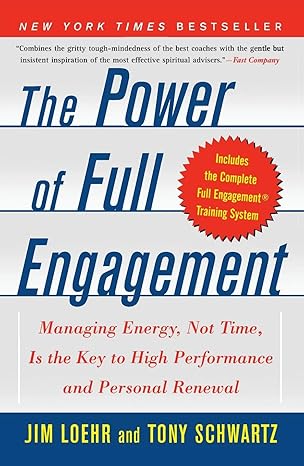
The Power of Full Engagement
This New York Times bestseller has guided hundreds of thousands of people in learning how to balance stress and recovery to sustain high performance—both at work and at home—despite nonstop demands and overwhelming workloads.
In today’s digital world, our pace is relentless. We rush through tasks, packed schedules, and endless notifications, all while trying to squeeze more into each day. But as authors Jim Loehr and Tony Schwartz explain, time management alone isn’t enough anymore. The key to lasting performance, health, and happiness lies in managing your energy—not your time.
The Power of Full Engagement offers a practical, science-backed approach to doing just that. It lays out essential training principles and a clear, step-by-step program designed to help you.
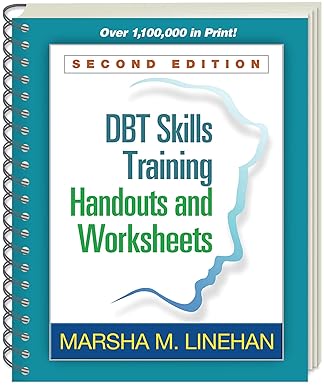
DBT Skills Training
This resource includes over 225 easy-to-use handouts and worksheets designed to help you learn and practice dialectical behavior therapy (DBT) skills. It’s a supportive companion to Marsha M. Linehan’s DBT Skills Training Manual (Second Edition), offering brief, client-focused introductions to each skills module.
Originally developed to treat borderline personality disorder, DBT has also been shown to be effective for a wide range of emotional and psychological challenges. You’ll have quick access to the tools that are most helpful for your specific needs.
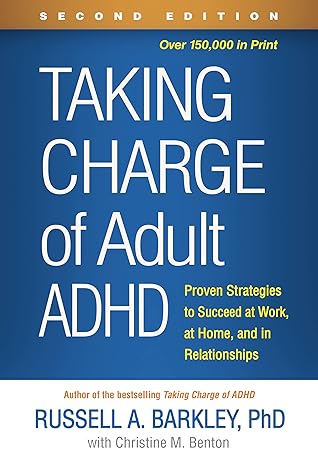
Taking Charge of Adult ADHD
In this book, preeminent expert Russell A. Barkley explains what ADHD looks like in adults, how to get an accurate evaluation, and how sufferers can manage symptoms and build the life they want. Readers get hands-on skill-building exercises plus clear answers to frequently asked questions about medications and other treatments.
Dr. Barkley offers step-by-step strategies for overcoming challenges in specific areas, such as relationships, parenting, work, money management, and driving. Featuring the latest resources and medication facts, the second edition includes new or expanded discussions of mindfulness, emotional self-control, time management, building a successful career, maintaining a healthy lifestyle, and more.
Looking for therapy in Chicago?
If you’re reading these books as part of your personal growth journey, consider scheduling therapy with our Chicago male therapist. We provide individual therapy and couples counseling that goes deeper than any book can. Free 15-minute consultation available.
Books for Couples Counseling – Recommended by Our Chicago Male Therapist:
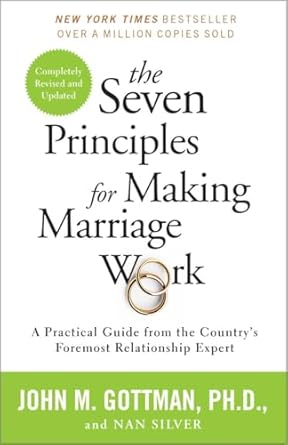
The Seven Principles for Making Marriage Work
This widely acclaimed guide by Dr. John Gottman and Nan Silver distills decades of research on what makes relationships succeed. Based on Gottman’s extensive observational studies of couples, the book outlines seven foundational principles that help partners build trust, resolve conflict, and deepen their emotional connection.
With practical exercises and real-life examples, the book gives couples tools to navigate common challenges—from communication breakdowns to disagreements over finances or parenting. Whether you’re in a new relationship or have been married for decades, this book offers a proven framework to strengthen your partnership and foster lasting love.

US
Written by renowned therapist Terrence Real, this book invites couples to shift from individual self-focus to a shared mindset that prioritizes connection, compassion, and collaboration. Drawing from decades of experience working with struggling couples, Real explores how our culture’s emphasis on individualism can quietly damage intimate relationships—leading to conflict, emotional distance, or disconnection.
With practical tools, compelling stories, and clear guidance, the book offers a path toward deeper intimacy by helping partners recognize destructive patterns, respond with emotional wisdom, and move from “you vs. me” to a united “us.” This relationship-centered approach empowers couples to build stronger bonds rooted in empathy, teamwork, and lasting love.

Can Love Last?
This book explores the challenges and potential of sustaining romance in long-term relationships. Psychoanalyst Stephen A. Mitchell argues that love doesn’t fade with time—it becomes riskier. What often looks like fading passion is actually the result of our efforts to protect ourselves from the vulnerability that love demands.
Drawing from clinical insight and real-life dynamics, Mitchell explains how unconscious fears and self-protective behaviors can get in the way of emotional intimacy. By recognizing and addressing these patterns, couples can keep their connection alive. The book offers a compassionate, optimistic perspective on how love can endure and deepen over time.
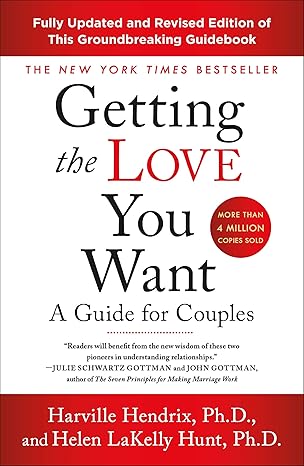
Getting the Love You Want
This relationship guide offers practical strategies for couples to deepen connection and create lasting intimacy. Drawing on decades of research and clinical experience, Harville Hendrix and Helen LaKelly Hunt help partners understand why they chose each other, how early experiences influence current dynamics, and what it takes to shift out of conflict and into meaningful connection.
The book includes tools for improving communication, reigniting romance, and healing old wounds that show up in relationships. Couples are guided to replace blame with curiosity, foster emotional safety, and build a shared vision for the future. With a blend of psychology, neuroscience, and heart-centered guidance, this book provides a framework for transforming relationships into sources of joy, growth, and mutual support.
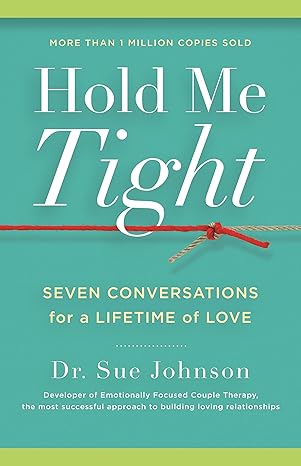
Hold Me Tight
This book presents a powerful approach to strengthening romantic relationships by focusing on emotional connection. Drawing from Emotionally Focused Couple Therapy, Dr. Sue Johnson guides couples through seven transformative conversations that help partners understand each other’s emotional needs and reestablish a secure bond.
Rather than emphasizing conflict resolution or communication techniques alone, the book explores how partners can become more open, responsive, and emotionally attuned. Through case examples, insights, and practical exercises, readers learn to identify patterns that drive disconnection and replace them with moments of vulnerability, trust, and healing. Designed for couples at any stage, this guide offers a path to lasting closeness and intimacy.
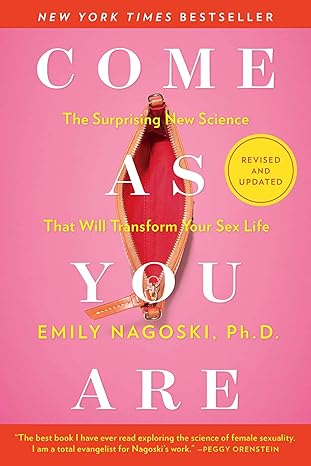
Come As You Are
This revised edition of Emily Nagoski’s groundbreaking bestseller brings together the latest research on women’s sexuality, desire, and pleasure. Nagoski challenges long-held myths and shifts the focus from anatomy to the deeper truth: how you feel about your body, your relationships, and yourself shapes your sexual well-being far more than biology alone. Through science-based insights and accessible storytelling, Nagoski explains how stress, mood, trust, and body image directly influence intimacy and desire. She emphasizes that every woman is already whole, and that cultivating pleasure and confidence begins with understanding and honoring your own experiences.
The updated edition introduces new findings on mindfulness and sexual health, offering practical tools to help readers create more satisfying and joyful connections. Empowering and transformative, it’s a guide to embracing sexuality with authenticity and self-compassion.
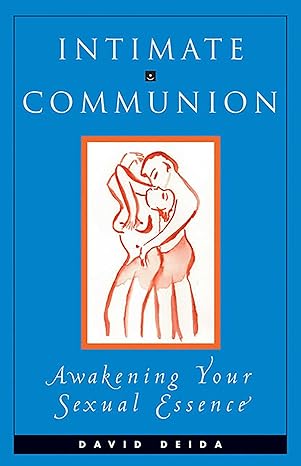
Intimate Communion
Intimate Communion explores how to move beyond the surface level of modern relationships and connect in a way that feels more authentic, passionate, and spiritually alive. David Deida describes how true intimacy begins when partners learn to embrace their natural masculine and feminine energies rather than neutralize them, creating space for both erotic depth and emotional honesty.
The book also introduces the three stages of love and intimacy, showing how couples can evolve from dependency or equality-based partnerships into a deeper, more conscious union. It’s a guide for anyone seeking a relationship that blends spiritual connection with genuine sexual and emotional fulfillment.
Need Help with Your Relationship?
Reading about relationships is helpful, but working with a therapist can create real change. Our Chicago practice offers couples counseling that combines evidence-based approaches with direct, practical guidance. Schedule your free consultation today.
Parenting Books Recommended by Our Chicago Therapist:

The Happiest Toddler on the Block
Perfect for new and expecting parents, this book is a trusted guide to navigating the toddler years—starting as early as eight months. Written by renowned pediatrician and child development expert Dr. Harvey Karp, it helps reduce tantrums while building patience, cooperation, and confidence in young children.
This updated edition offers quick, effective techniques like Toddler-ese, the Fast-Food Rule, and a simple green light/yellow light/red light behavior system. Designed for busy parents, it provides practical tools to calm outbursts, prevent meltdowns, and create more peaceful, connected moments with your child.
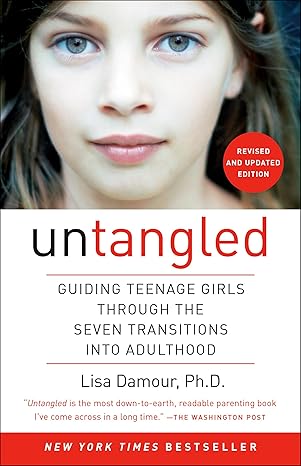
Untangled
Untangled by Dr. Lisa Damour is a practical and compassionate guide for parents navigating the complex and sometimes unpredictable world of raising teenage girls. Drawing on years of clinical experience and current psychological research, Damour outlines seven key developmental transitions that girls experience on their journey to adulthood—including separating from childhood, handling adult authority, forming romantic relationships, and developing self-care.
This updated 2025 edition includes new insights on social media, gender identity, and substance use. Through relatable scenarios and thoughtful answers to common parenting questions, Damour offers tools for effective communication, emotional support, and building trust. Untangled helps parents understand the deeper meaning behind their daughter’s behavior so they can foster a healthy, respectful, and connected relationship through the teen years and beyond.
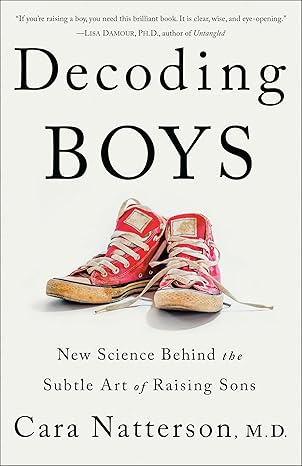
Decoding Boys
This book by Cara Natterson, MD, is a supportive and informative guide for parents raising boys through puberty. This book sheds light on the emotional and physical changes boys experience—often long before visible signs appear—and explains why they may grow quieter, more private, or harder to read. Natterson combines medical insight with real-world parenting advice to help parents stay connected to their sons during this often confusing phase.
The book covers key topics such as how to talk to boys about their changing bodies, decision-making, consent, video game use, and exposure to online content like pornography. It also emphasizes the importance of maintaining emotional and physical connection, even when boys push for independence. With practical scripts, scientific explanations, and a compassionate tone, Decoding Boys helps parents raise confident, respectful, and emotionally secure young men.
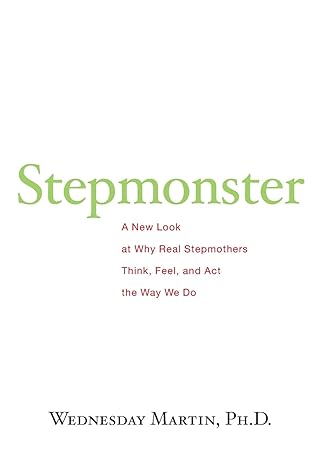
Stepmonster
This insightful book by Wednesday Martin, Ph.D., offers an honest and empathetic exploration of the stepmother experience. Drawing from personal stories, psychological research, and evolutionary biology, it reveals the emotional and societal complexities that stepmothers face. The book dismantles common myths, challenges the blame often placed on stepmothers, and introduces five “step-dilemmas” that frequently cause conflict. It also examines how men with children navigate remarriage and why the cultural trope of the “Wicked Stepmother” persists. This is a thoughtful resource for anyone navigating blended families or seeking to better understand the challenges of stepmotherhood.
With compassion and clarity, Martin reframes the narrative around stepmothers—offering validation, insight, and practical wisdom. Whether you’re a new stepmom, a long-time partner to someone with kids, or a professional working with blended families, this book provides a deeper understanding of what it means to take on this often misunderstood role.
Professional Resources for Therapists:
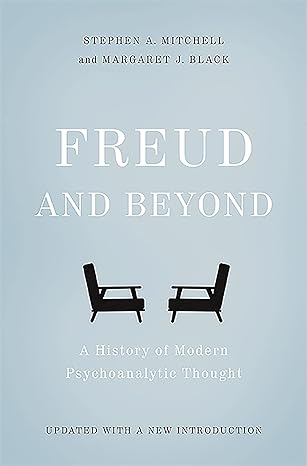
Freud and Beyond
This book offers a comprehensive overview of over a century of psychoanalytic theory, beginning with the foundational ideas of Sigmund Freud and extending through major thinkers like Melanie Klein, D.W. Winnicott, Harry Stack Sullivan, and Jacques Lacan. It explores how psychoanalysis has evolved far beyond Freud’s original concepts to shape modern understandings of the mind.
Written in an accessible and engaging style, the book uses real case examples to bring complex theories to life, making it an ideal introduction for anyone interested in the development and impact of psychoanalytic thought.
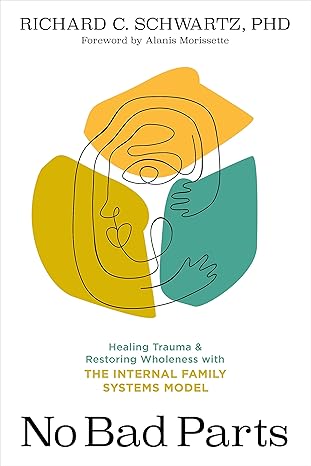
No Bad Parts
This book introduces the Internal Family Systems (IFS) model, a groundbreaking approach to understanding the mind as a system of many inner parts rather than a single identity. Instead of suppressing conflicting thoughts or emotions, IFS encourages recognizing and compassionately engaging with each part of ourselves—even those we usually reject.
By exploring how these parts form, often in response to trauma or cultural beliefs, the book offers tools for healing, self-discovery, and personal growth. It presents a hopeful perspective: there are no bad parts—only parts that need care, attention, and understanding.
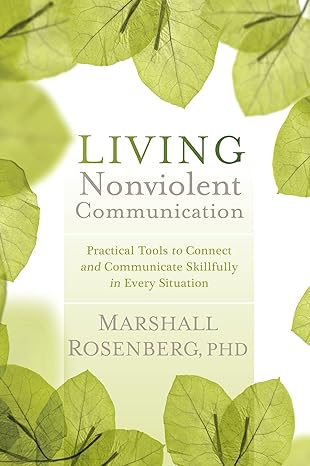
Living Nonviolent Communication
This book offers practical tools for handling conflict and communication with more clarity, empathy, and compassion. Based on Dr. Marshall Rosenberg’s Nonviolent Communication (NVC) method, it helps readers move beyond reactive habits—like defensiveness or blame—toward more mindful, honest, and connected interactions.
Whether you’re navigating relationship struggles, parenting challenges, or workplace tensions, the book provides guidance for applying NVC in real-life situations, with a focus on listening deeply, expressing yourself clearly, and creating mutual understanding.
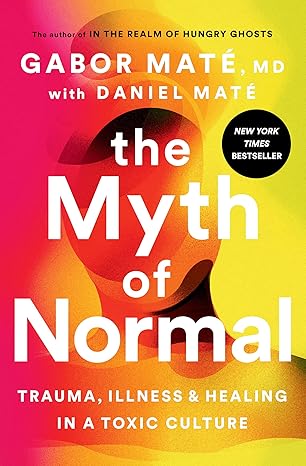
The Myth of Normal
This book challenges the idea that widespread illness and mental health struggles are simply “normal” in today’s society. Drawing on decades of clinical experience, physician Gabor Maté explores how chronic stress, trauma, and the demands of modern life deeply impact our physical and emotional well-being—often in ways that Western medicine overlooks.
By connecting personal health issues with broader societal dysfunction, the book reveals how our culture itself can be a source of disease. It also offers a compassionate path toward healing that emphasizes treating the whole person, not just their symptoms.
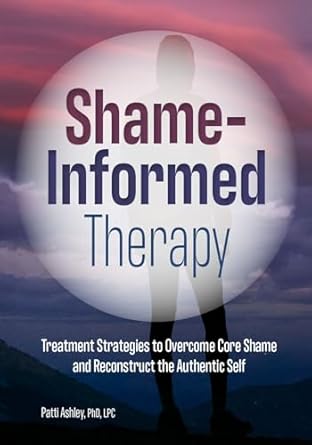
Shame-Informed Therapy
This workbook introduces Shame-Informed Therapy, a powerful approach for helping clients heal from deep-rooted feelings of unworthiness and negative self-beliefs often rooted in childhood. It offers practical tools for treating anxiety, depression, low self-esteem, and other challenges tied to core shame.
Drawing on decades of clinical and developmental expertise, the book blends neurobiology, Polyvagal Theory, somatic practices, and narrative work to guide clients in reconnecting with their authentic self. It’s designed to help therapists support even the most resistant clients with empathy, structure, and sustainable healing techniques.
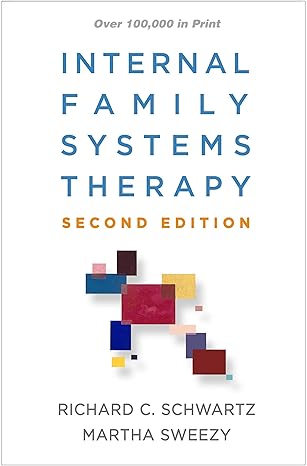
Internal Family Systems Therapy
This updated edition offers a comprehensive and practical guide to Internal Family Systems (IFS) therapy, a widely used approach that views the mind as made up of multiple “parts” that function like a family. When these parts are in conflict, they can cause emotional pain—but by helping clients connect with their core Self, therapists can support healing and balance.
With over 70% new material, the book includes expanded techniques, case examples, and step-by-step guidance for treating a range of issues including trauma, anxiety, addiction, and relationship challenges. It also explores the therapist’s role, the connection between mind and body, and new strategies for working with couples and families.
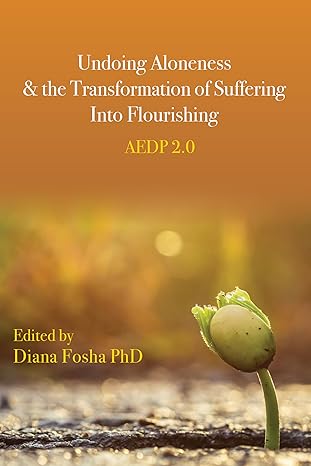
Undoing Aloneness & the Transformation of Suffering into Flourishing
This book presents the latest updates to Accelerated Experiential Dynamic Psychotherapy (AEDP), a therapeutic approach that helps clients heal through corrective emotional and relational experiences. Grounded in attachment theory and affective neuroscience, AEDP views emotional suffering as rooted in early insecure relationships and aims to transform that pain through connection and co-regulation with the therapist.
Now in its second iteration, AEDP 2.0 expands on the original model by integrating new insights from neuroscience and emphasizing the power of presence, empathy, and experiential work. Clinical transcripts and analysis throughout the book illustrate how deep emotional wounds can be rewired into resilience, even for those with complex trauma histories.
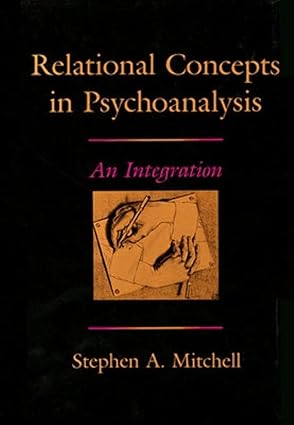
Relational Concepts in Psychoanalysis
This book offers a unifying framework for understanding the wide-ranging schools of relational psychoanalysis. Stephen A. Mitchell synthesizes key ideas from interpersonal psychoanalysis, object relations theory, self psychology, and existential psychoanalysis to address central questions in clinical practice and theory—such as the role of early experience, repetition, sexuality, and the therapeutic relationship.
Arguing that the traditional drive model has become outdated, Mitchell presents the relational model as a more flexible and comprehensive alternative. By highlighting the shared assumptions across various relational approaches, the book helps clarify psychoanalytic thinking and provides clinicians with a more coherent foundation for understanding human behavior and therapeutic change.
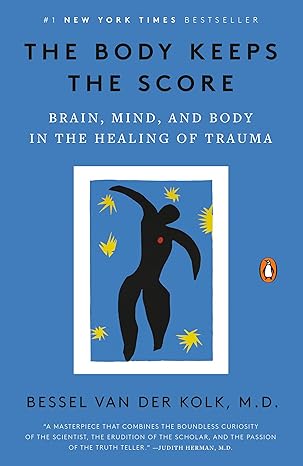
The Body Keeps the Score
This book explores how trauma impacts both the body and the brain, reshaping a person’s ability to feel safe, connected, and in control. Drawing on decades of clinical work and scientific research, Dr. Bessel van der Kolk shows how trauma affects emotional regulation, physical health, and relationships—and why traditional talk therapy alone is often not enough.
Through approaches like neurofeedback, movement, mindfulness, and creative expression, the book presents new, body-based pathways for healing. It’s a powerful guide for understanding the lasting effects of trauma and discovering methods that help restore resilience and well-being.
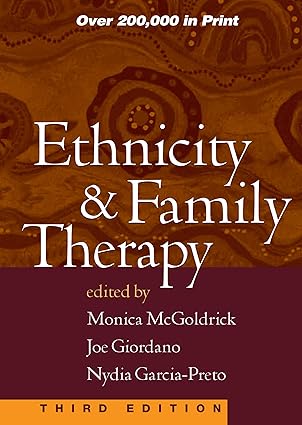
Ethnicity & Family Therapy
This book is a comprehensive guide for therapists and clinicians seeking to provide culturally sensitive care across a wide range of communities. Covering over 40 different ethnic groups, it explores how culture, heritage, and identity shape the therapeutic experience—for both clients and practitioners.
Each chapter highlights how cultural backgrounds influence beliefs, behavior, communication styles, and expectations in therapy. The book offers practical insights into working with diverse populations, helping clinicians better understand how ethnocultural factors affect the challenges clients face, as well as the strengths and resources they bring to the healing process. It’s an essential reference for fostering respectful, informed, and effective cross-cultural practice.
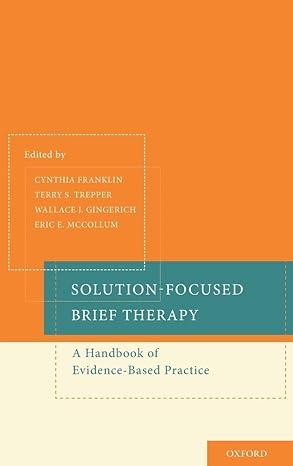
Solution-Focused Brief Therapy
This book is a comprehensive guide to Solution-Focused Brief Therapy (SFBT), a short-term, goal-oriented approach that emphasizes clients’ strengths rather than their problems. It shows how effective, lasting change can begin in just a few sessions by helping clients identify solutions and build toward a preferred future.
Designed for both researchers and practitioners, the book reviews the latest SFBT research and demonstrates its practical applications across diverse populations, including youth, individuals with substance use or mental health challenges, and those involved in the justice system. It also includes tools like a treatment manual and fidelity measures, making it a valuable resource for implementing this strengths-based approach in clinical settings.

Narrative Means too Therapeutic Ends
This book explores how narrative therapy helps individuals and families reshape the stories they live by, especially when those stories don’t reflect their true experiences. Michael White and David Epston introduce the use of letter-writing as a powerful therapeutic tool to support this process, encouraging clients to reflect on, revise, and take ownership of their personal narratives.
By centering lived experience and inviting a more reflective, collaborative approach, the authors show how therapy can empower people to reauthor their relationships and identities. The result is a more meaningful and liberating way of engaging with life’s challenges through storytelling and connection.
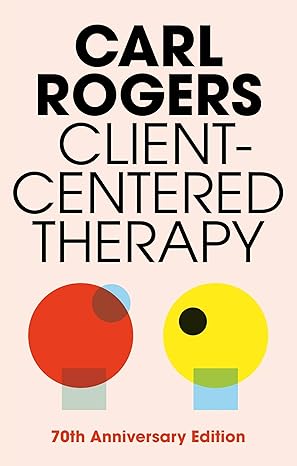
Client-Centered Therapy
This foundational book by Carl Rogers outlines the principles and evolution of client-centered therapy, a humanistic approach that emphasizes empathy, authenticity, and unconditional positive regard. Rather than directing or advising clients, the therapist’s role is to create a safe, supportive space where individuals can explore their thoughts and feelings freely, leading to personal growth and self-discovery.
Rogers details the philosophy behind non-directive counseling and shares how this approach has evolved over time, offering insight into both its practical techniques and theoretical foundations. This work remains a cornerstone for therapists, students, and anyone interested in understanding the power of genuine, client-led therapeutic relationship.
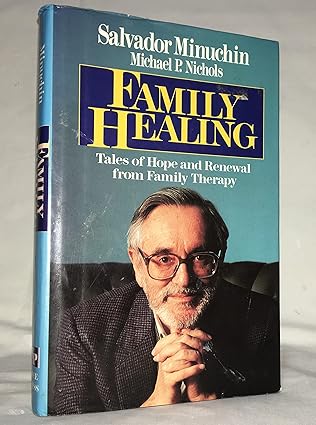
Family Therapy Techniques
This book offers an inside look at the practical techniques of renowned family therapist Salvador Minuchin, known for shaping the field of structural family therapy. Co-written with H. Charles Fishman, it provides a detailed, behind-the-scenes view of how Minuchin navigates the real-time dynamics of family sessions—showing not just what to do, but how and why to do it.
Rather than focusing solely on theory, the book emphasizes the clinical maneuvers, interventions, and decision-making processes that occur moment by moment in therapy. It’s an invaluable guide for both new and experienced clinicians who want to deepen their skills in working with families and understand the nuanced strategies that make therapy effective.
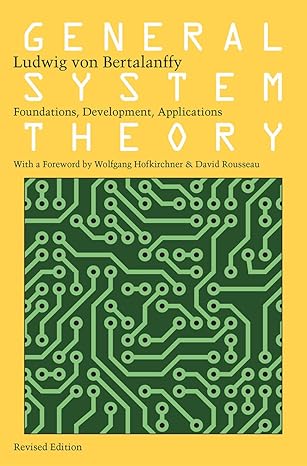
General System Theory
This influential work by Ludwig von Bertalanffy lays the foundation for General System Theory—a groundbreaking framework that seeks to understand the universal principles that apply across disciplines, from biology and psychology to economics and social science. By exploring how systems function, adapt, and interact, the book offers a unifying language for analyzing complex structures and relationships in both natural and human-made environments.
More than just a historical text, this edition includes a new foreword that highlights the ongoing relevance of system thinking in today’s world, including its application to fields like sustainability, technology, and organizational dynamics. It remains essential reading for anyone interested in interdisciplinary research, systems theory, or holistic approaches to understanding the world.
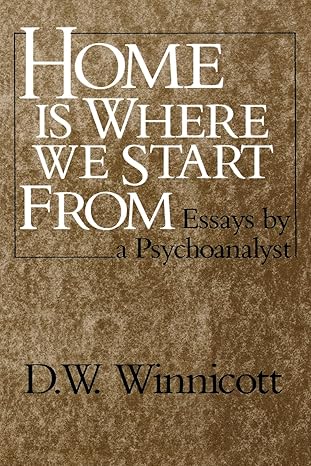
Home is Where we Start From
This collection brings together some of the most influential and accessible writings by D. W. Winnicott, a pioneering figure in child psychoanalysis. Known for his deep understanding of the emotional world of children, Winnicott explores how early relationships shape the developing self, and how concepts like the “transitional object” and the “false self” help us understand emotional growth, resilience, and difficulty.
The essays span a wide range of topics—including mental health, parenting, and social behavior—and are drawn from both academic and public talks, some previously unpublished. Thoughtful and compassionate, this book reflects Winnicott’s unique ability to speak to both professionals and everyday readers about the complex, human process of becoming oneself.
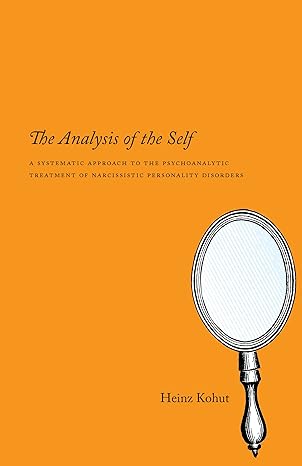
The Analysis of the Self
This groundbreaking book by Heinz Kohut presents a systematic approach to treating narcissistic personality disorders and remains a foundational text in modern psychoanalytic theory. In The Analysis of the Self, Kohut offers a detailed framework for understanding the development and structure of the self, especially in individuals with narcissistic vulnerabilities.
Departing from traditional Freudian ideas, Kohut introduced self psychology—a model that emphasizes empathy, early relational needs, and the importance of mirroring in healthy psychological development. Widely praised for its clinical insight and theoretical depth, this work reshaped the treatment of personality disorders and continues to influence therapists and scholars seeking to understand the complexities of selfhood and human connection.

The Ego and The Mechanisms of Defence
This classic work by Anna Freud explores how the ego protects itself from anxiety, inner conflict, and distress by using a range of psychological defenses. Focusing on mechanisms such as repression, denial, projection, and displacement, the book outlines how these unconscious strategies operate to help individuals manage difficult emotions and impulses.
Drawing on both clinical observation and theoretical insight, Freud offers a detailed account of the ego’s role in mental functioning, particularly in how it negotiates between inner drives and external demands. As one of the foundational texts in psychoanalytic psychology, this book remains essential reading for understanding the roots of emotional defense, personality structure, and the dynamics of the human mind.
Start Therapy in Chicago with a Reading-Informed Approach
Many of these books inform the therapeutic approaches used at Modern Therapy Alliance. If you’re interested in working with a Chicago male therapist who integrates evidence-based practices, book recommendations, and direct conversation, schedule your free consultation today.
Whether you’re seeking individual therapy, couples counseling, or specialized support for ADHD, anxiety, relationships, or life transitions, our Chicago practice is here to help.
Call or visit moderntherapyalliance.com/contact to get started with therapy in Chicago.